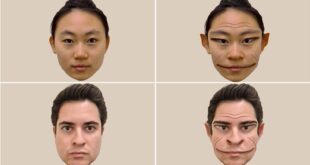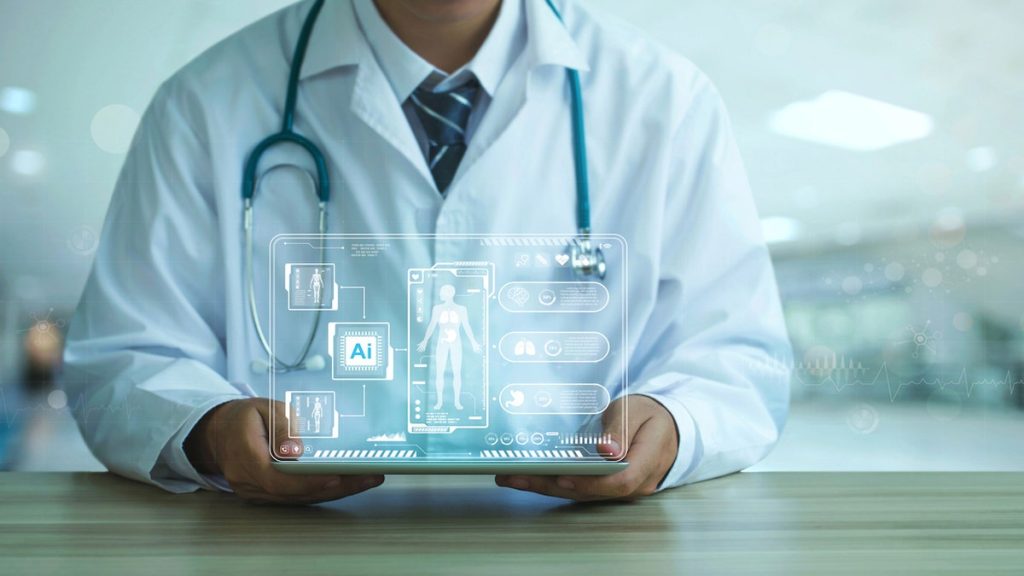
If you received medical care any time this year, there’s a good chance you had a close encounter with artificial intelligence.
Widely regarded as the breakout year for AI, 2023 ushered in a whole crop of new and improved tech tools, many of which have impacted the health and wellness space.
“2023 has been a landmark year for AI in health care, witnessing groundbreaking advancements that have reshaped medical practices and paved the way for a future where health care is more personalized, efficient and accessible,” Dr. Harvey Castro, a Dallas, Texas-based board-certified emergency medicine physician and national speaker on AI in health care, told Fox News Digital.
WHAT IS ARTIFICIAL INTELLIGENCE (AI)?
Castro and other AI experts weighed in on some of the year’s most important advancements for doctors and patients.
Below are six of the top innovations they cited.
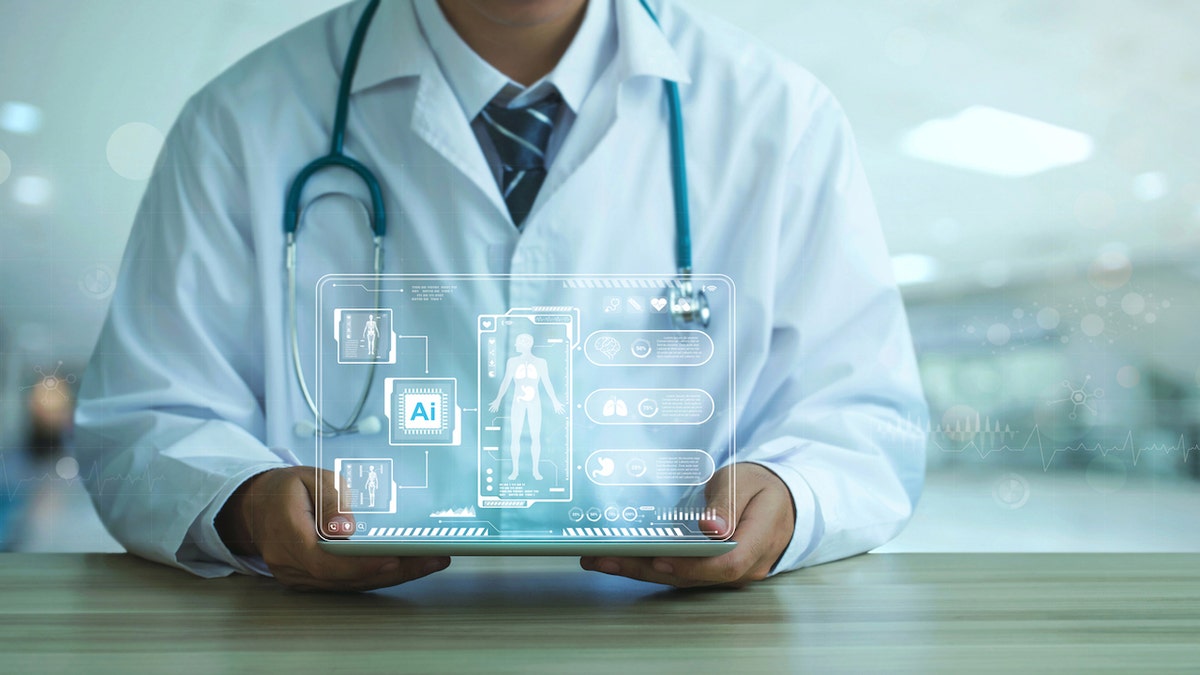
The year 2023 ushered in a whole crop of new and improved AI tools, many of which have impacted the health and wellness space. (iStock)
1. ChatGPT and other generative AI
Despite the lack of a formal regulatory framework governing its use, generative AI is being widely tested by medical professionals, noted Dr. Tinglong Dai, professor of operations management and business analytics at the Johns Hopkins Carey Business School in Baltimore, Maryland.
NEW RESEARCH SHOWS CHATGPT SHARED INACCURATE INFORMATION REGARDING DRUG USE
“ChatGPT remains the best-known and most widely used generative AI tool among health care professionals in various activities aimed at reducing documentation burden and allowing clinicians to focus on their core activities,” Dai told Fox News Digital.
“Johns Hopkins University has several ongoing research projects investigating the potential of using generative AI to reduce clinician burnout as a result of electronic medical records,” he noted.
Released by OpenAI in Nov. 2022, ChatGPT exploded onto the health scene in 2023.
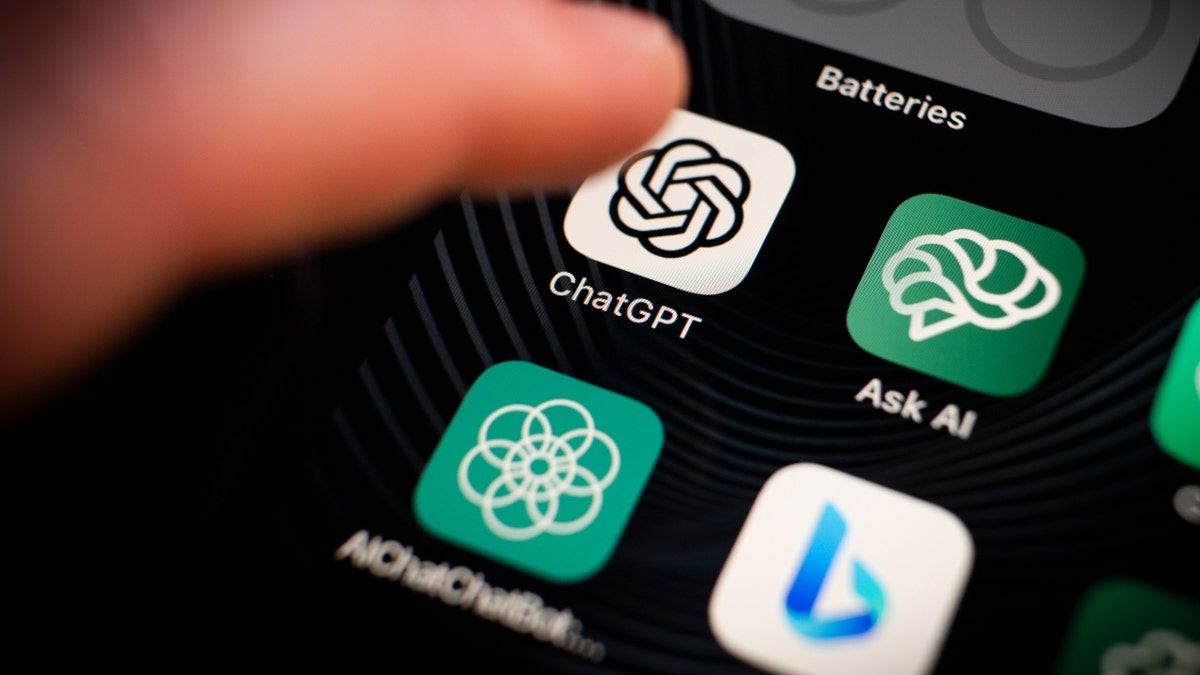
Released by OpenAI in Nov. 2022, ChatGPT exploded onto the health scene in 2023. (Jaap Arriens/NurPhoto via Getty Images)
The large language model affects everything from how patients get medical advice to how physicians communicate and keep records.
“ChatGPT has revolutionized health care communication by providing tools for personalized treatment plans and remote patient engagement,” said Castro.
“For instance, it has been used to create interactive patient education materials, enhancing understanding and compliance.”
ARTIFICIAL INTELLIGENCE HELPS DOCTORS PREDICT PATIENTS’ RISK OF DYING, STUDY FINDS: ‘SENSE OF URGENCY’
The AI chatbot has also sparked some skepticism, however, as its responses have sometimes been found lacking in accuracy and thoroughness.
“Human oversight remains indispensable, ensuring that AI tools like ChatGPT are used as supplements rather than replacements for professional medical judgment,” Castro added.
2. Disease detection through retinal images
In September of this year, researchers from the University College London team announced a “groundbreaking” AI model for disease detection using retinal images; the results were published in the journal Nature.
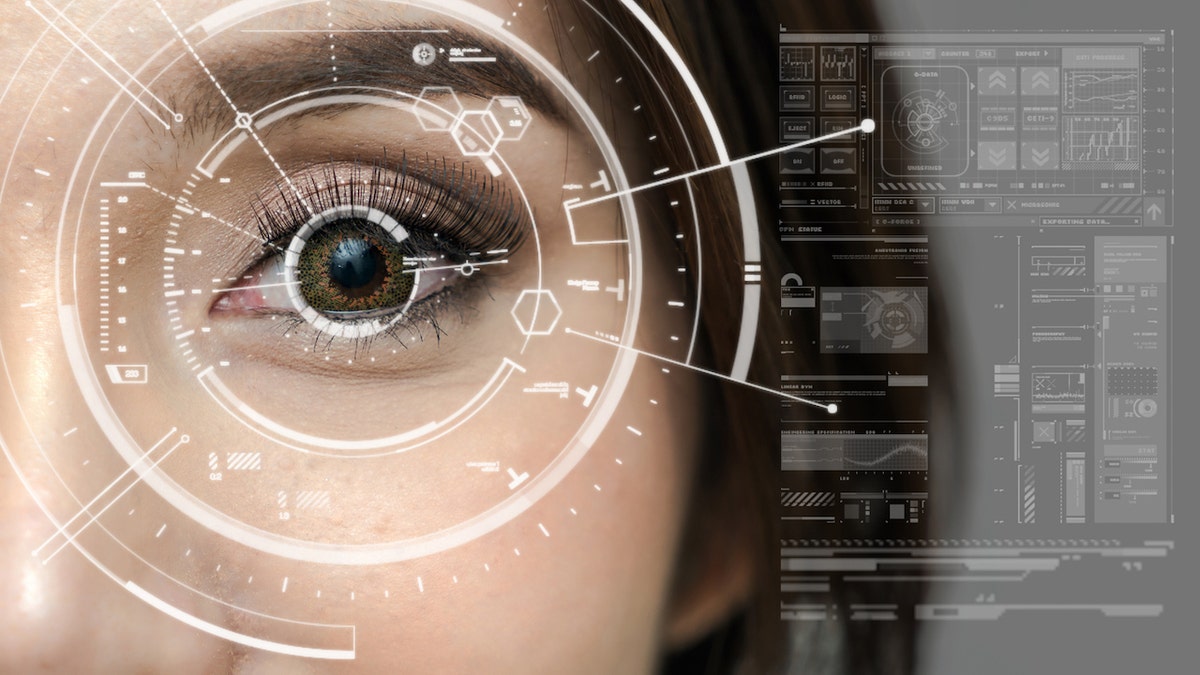
In September 2023, researchers from the University College London announced a “groundbreaking” AI model for disease detection using retinal images. (iStock)
“This model, developed through self-supervised learning on 1.6 million unlabeled retinal images, excels in diagnosing and predicting both eye diseases and systemic disorders such as heart failure and myocardial infarction,” Dai told Fox News Digital.
The model, called RETFound, marks a “significant advance in medical AI, providing a more efficient approach to disease detection through a foundation model,” Dai added.
3. Improvements to medical productivity
In another AI discovery, a U.S.-U.K.-Bangladesh study provided the first real-world evidence that autonomous AI can improve medical productivity, Dai noted.
The study, published in the Nature Group’s npj Digital Medicine, showed a 40% increase in clinical productivity in diagnosing retinal disease in patients with diabetes.
MAYO CLINIC SEES AI AS ‘TRANSFORMATIVE FORCE’ IN HEALTH CARE, APPOINTS DR. BHAVIK PATEL AS CHIEF AI OFFICER
This was achieved using an FDA-cleared AI device to screen the patients as they entered the hospital.
“The AI device allows clinicians to focus on the most complex patients,” Dai said. “When adjusted for complexity, there is a 265% increase in productivity.”
4. Medical imaging and education
DALL-E 3 is an AI-based image generation model that was originally launched by OpenAI in January 2021.
As OpenAI describes it, “DALL-E 3 takes a text prompt as an input and generates a new image as an output.”
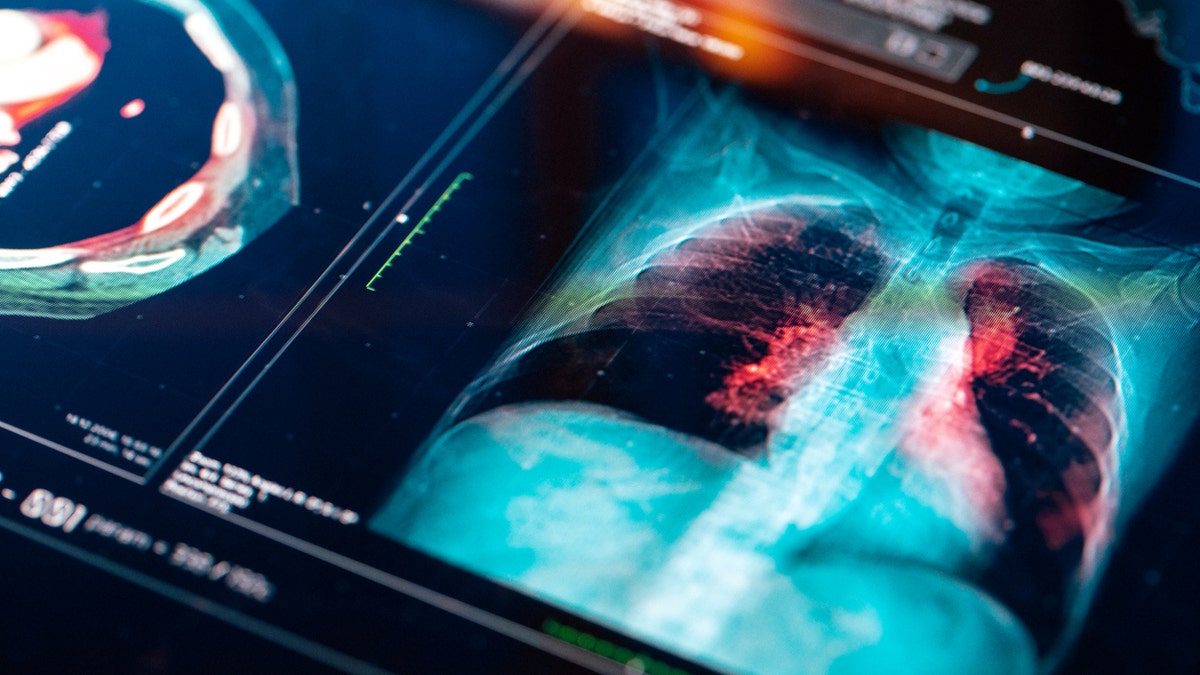
Advancements in AI-driven medical imaging, such as improved MRI technology, have led to faster scanning times, enhanced image resolution and reduced radiation exposure, an expert said. (iStock)
In the health arena, Castro pointed out that DALL-E3 can create accurate medical illustrations from textual descriptions.
“This has been instrumental in medical education, providing visual aids for complex medical conditions and procedures,” he told Fox News Digital.
There have also been advancements in AI-driven medical imaging, such as improved MRI technology, which have led to faster scanning times, enhanced image resolution and reduced radiation exposure, significantly improving diagnostic accuracy, Castro added.
5. Accelerated cancer research
Andre Esteva, CEO and co-founder of ArteraAI, a precision medicine company in California, described cancer research as “fertile ground for AI.”
“We’re using it to find hidden patterns in data, personalize treatment decision-making and help predict treatment benefit,” he told Fox News Digital.
NEW AI-GENERATED COVID DRUG ENTERS PHASE I CLINICAL TRIALS: ‘EFFECTIVE AGAINST ALL VARIANTS’
AI is helping to speed up clinical trials and opening doors to new possibilities in health care, Esteva noted.
“Imagine AI designing cancer treatments tailored to your unique genome — the possibilities are limitless.”
6. AI medical devices
AI-based medical devices continue to be strong, noted Dai of Johns Hopkins.
As of July 2023, 692 AI devices were approved by the U.S. Food and Drug Administration (FDA) for clinical use, a 33% increase from 2022.
“The clinicians who embrace these technologies will very likely replace the clinicians who don’t.”
“Approved devices now cover 19 specialties, although radiology remains the largest specialty, accounting for approximately three-quarters of approved devices,” Dai told Fox News Digital.
An AI report from the New England Journal of Medicine also highlighted the real-world use of these devices, showing their rapid growth.
‘A blockbuster year’
Matt Mohebbi, head of AI and research at Brightside Health in New York, described 2023 as a “blockbuster year” for fundamental research in large language models for health care.
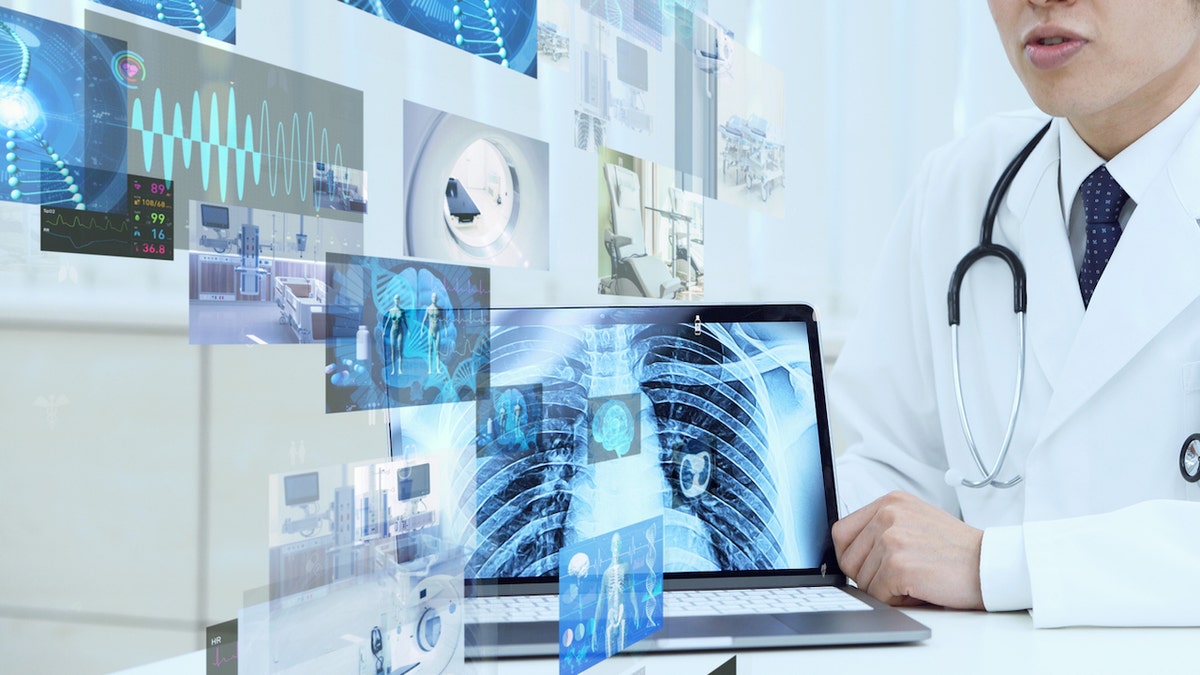
The AI advancements of 2023 represent a “significant leap forward in integrating AI into health care,” an expert told Fox News Digital. (iStock)
“Some of the biggest companies are competing with each other to produce state-of-the-art performance in medical benchmarks,” he told Fox News Digital.
“While patients won’t be able to see the benefits of these findings in the doctor’s office today, it is quite telling for what’s in store,” Mohebbi went on. “The clinicians who embrace these technologies will very likely replace the clinicians who don’t.”
CLICK HERE TO GET THE FOX NEWS APP
The AI advancements of 2023 represent a “significant leap forward in integrating AI into health care,” Castro told Fox News Digital.
“These innovations promise a future where health care is more personalized, efficient and accessible, ultimately leading to better patient outcomes and a transformed health care landscape.”
For more Health articles, visit www.foxnews.com/health.

 Latest Breaking News Online News Portal
Latest Breaking News Online News Portal




